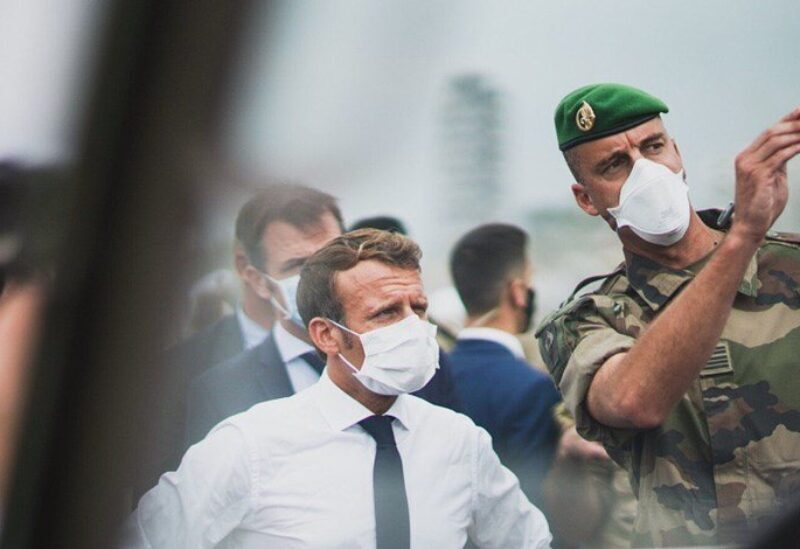
French President Emanuel Macron
Worldwide, especially among the active and influential countries, there are always priorities. Small or secondary countries on the globe map succeed in imposing themselves on the table of big ones, or the major countries have an interest in putting small or secondary countries on their table, and in both cases these countries have become a source of interest.
From late eighties till early nineties, Lebanon was put on the table of big countries, and it was the Arab Tripartite Higher Committee headed by the Kingdom of Saudi Arabia, which led to the holding of the “Taif Conference” that ended the war in Lebanon, and drew up an agreement that turned into a constitution, and allocated three billion dollars to Lebanon to restore its reconstruction.
Then, the Lebanese issue was at the center of the Arab countries’ concern, and the influential Western countries were also involved in this interest, especially the United States of America, France and the Vatican.
General Michel Aoun, who was the head of the military government at the time, rejected the Taif Agreement and hindered its implementation. So, implementing this agreement delayed for a whole year, from October 1989 to October 1990. In that year of delay, the interest in the Lebanese issue declined relatively, and the interest in the Gulf, specifically Iraq and Kuwait, advanced. Because of this decline, Lebanon lost a golden opportunity to accelerate stabilization, and obtain the aid allocated to it, as the interest began to shift to another place.
Lebanon was again an important issue for Western countries, with the start of the Syrian war in March of 2011, due to the influx of Syrian refugees to it, and the international interest in these displaced people, not out of love for them or for the Lebanese, but for Lebanon not to become a platform for these displaced people, to move later to European countries. The West took care of them, regarding their camps, their medicine, and the education of their children, and the Lebanese authorities were silenced through some aid, on the margin of the Syrian displaced ones.
The Lebanese diplomacy failed to turn the Syrian exodus to Lebanon into a file placed on the big ones’ table, and to make it a file, exceeds being a mere “paper.” So, this diplomacy did not provoke the West to gain its protection, and spare itself from being dragged to axis game, but how can this diplomacy succeed in doing so, if it is under the control of Hezbollah?
Because of this policy, the Lebanese issue has returned once again to a deferred issue, with priority given to addressing the explosive Syrian situation for more than ten years, and there is no sign of this war coming to an end soon.
Then, it was the port explosion on August 4, 2020, the world moved, so the Lebanese issue returned to the center of attention. French President Emmanuel Macron visited Lebanon twice. More than one conference was held in Paris to discuss ways to provide aid to Lebanon, but, as each time, the Lebanese quarrels receded the international interest, France backed down, and so did all those who were interested, and again Lebanon lost a new opportunity for international attention.
In light of this interest decline in Lebanon, the American withdrawal from Afghanistan and the control of the Taliban movement occurred, and the massive exodus made the world’s attention turn to Afghanistan, and put aside any other issue.
And thus, once again, Lebanon returned to a forgotten issue. The world is once again interested in the emerging issue of Afghan refugees, so the active and influential countries have begun to talk about their willingness to host and help a certain number of the displaced. And once again, the world is worried that Afghanistan will return to be a hotbed of terrorism for extremist groups.
Since the Taif conference till now, more than thirty years, during which the Lebanese cause has been advancing, but the Authorities did not know how to turn this progress into an impetus to invest in international attention, which transferred the Lebanese case from a “postponed case” to a “forgotten one.”